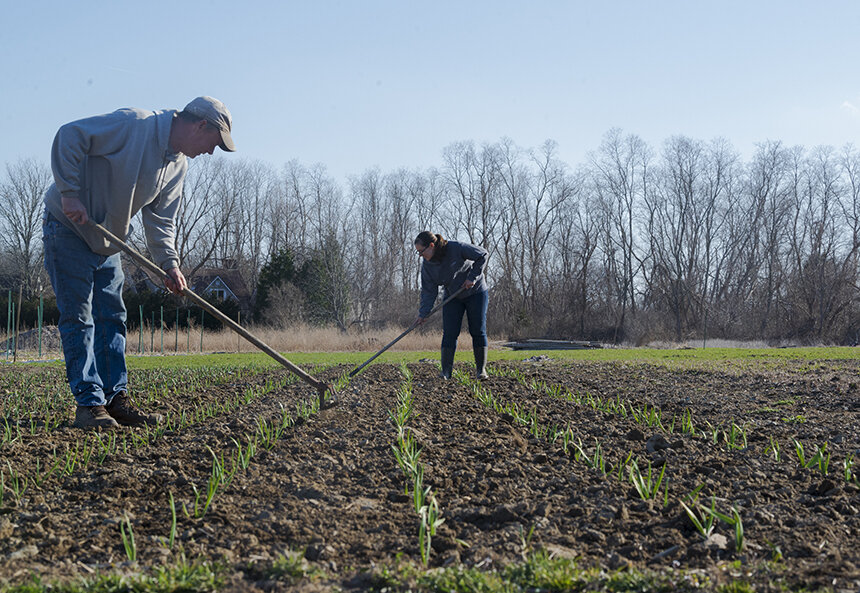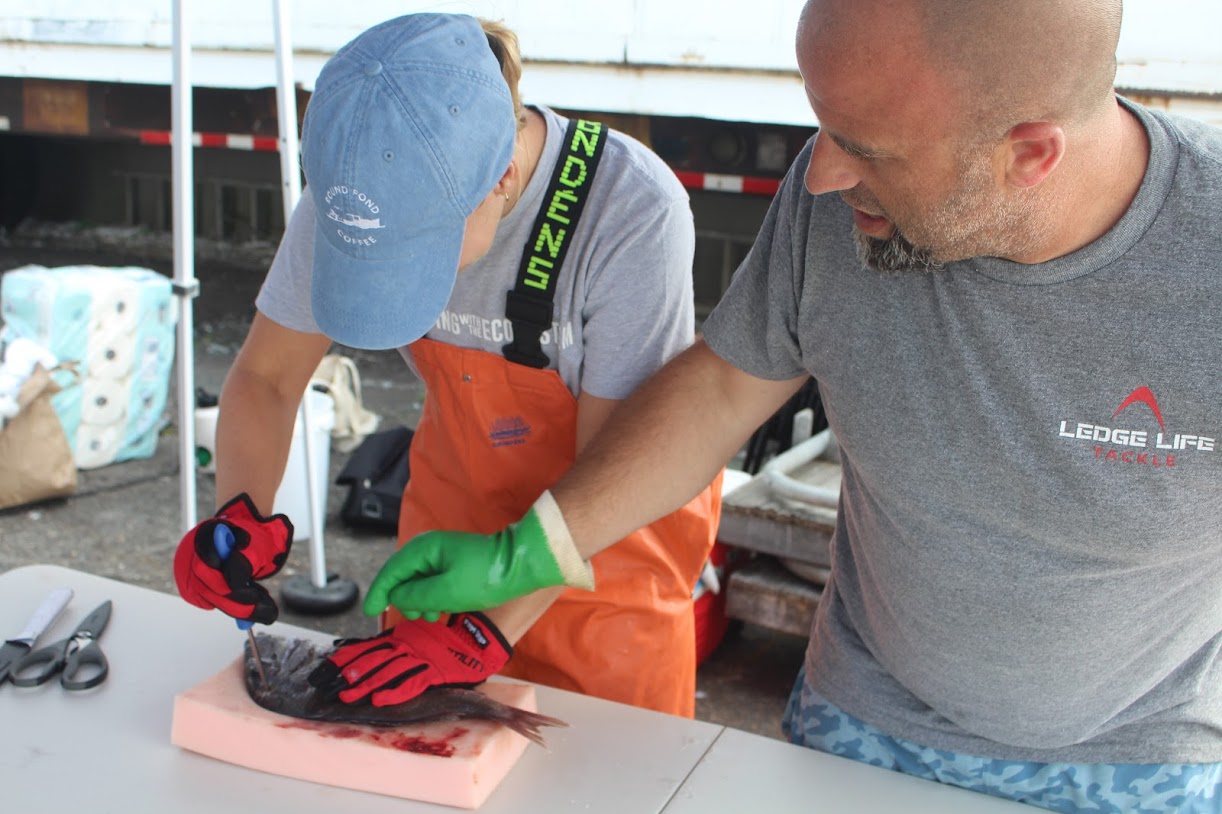New Partnership Acts to Increase Island’s Food Security
May 4, 2016
AQUIDNECK ISLAND, R.I. — There’s a small food revolution happening here, thanks in part to a newly formed organization called Aquidneck Community Table. The initiative was born when three existing groups came together to share in the same mission of strengthening the island’s food system.
The trio of Sustainable Aquidneck, Aquidneck Growers Market and the Island Commons Food Initiative were all working toward this goal individually. Now joined as the Aquidneck Community Table (ACT), the organization can have a much greater impact. With leadership from program director Bevan Lindsay, two major projects are underway: a community garden program in Newport and a Food Map, highlighting the island’s farms, markets, gardens and food support networks.
Unique challenges exist within the Aquidneck Island food system, because of the huge discrepancy in wealth and poverty that exists in the city of Newport. In the summer, Newport swells with tourists and wealthy part-time residents. In the winter, the city’s population becomes one of the poorest in the state.
One thing ACT is trying to do is level the playing field, or, in this case, the growing fields, so that everyone who lives on Aquidneck Island, in any season, has access to fresh food.
Community gardens in Newport are a step in this direction. One has been approved at the Great Friends Meeting House, owned by the Newport Historical Society, and another at the Florence Gray Senior Center. In addition to the community gardens, ACT is working on creating mobile farmers markets that are convenient for year-round resident shoppers that may not feel comfortable surrounded by the Newport summer crowd at a weekly market.
ACT also is addressing issues of farmland preservation. According to Lindsay, the average age of an Aquidneck Island farmer is 65 and 85 percent of them don’t have a succession plan for when they retire. This leaves a lot of farmland at risk of being developed. The Aquidneck Land Trust works toward preservation with conservation easements and by buying development rights.
However, “once the land is protected from development, it still doesn’t make it viable for a future in farming,” said Alex Chuman, the Aquidneck Land Trust’s stewardship director. Not only is the cost of farmland in Rhode Island among the highest in the country, and Newport County the highest in the state, but many young people don’t see farming as a viable way to support themselves.
“You have to be a lunatic to take this on,” said Jim Garman, owner of Garman Farm in Middletown. “Somehow we’ve managed to do OK, but we will never be able to purchase land and do all the things we want.”
Garman Farm is a small organic farm that survives on its CSA membership and wholesale accounts, ever challenging with the incredibly seasonal Aquidneck Island community.
Both the land trust and ACT are hopeful they can come up with innovative ideas to keep farmland producing local food. Whether this means speaking with farmers to develop the right succession plan, matching young farmer programs with retiring growers, leasing out small parcels of land, or turning farmland into agricultural education centers, it will take collaborative work from many people that are committed to seeing a food secure Aquidneck Island.
On the tails of the organization’s recent Food Summit, ACT is energized for the upcoming growing season. Members are working on a new version of the Food Map, this one to include aquaculture operations and farm-to-table restaurants, which they hope to see grow in numbers as local food awareness increases.
ACT hopes to be a “central organization that weaves together the many other nonprofits and projects that already exist,” Lindsay said. “Our hope is to get people to work together and step away from their own agenda for the good of our community.”
Categories
Join the Discussion
View CommentsRecent Comments
Leave a Reply
Your support keeps our reporters on the environmental beat.
Reader support is at the core of our nonprofit news model. Together, we can keep the environment in the headlines.
We use cookies to improve your experience and deliver personalized content. View Cookie Settings




I am curious to know why the Foodforest planted in Middletown was not mentioned as part of the solution re: food insecurity.